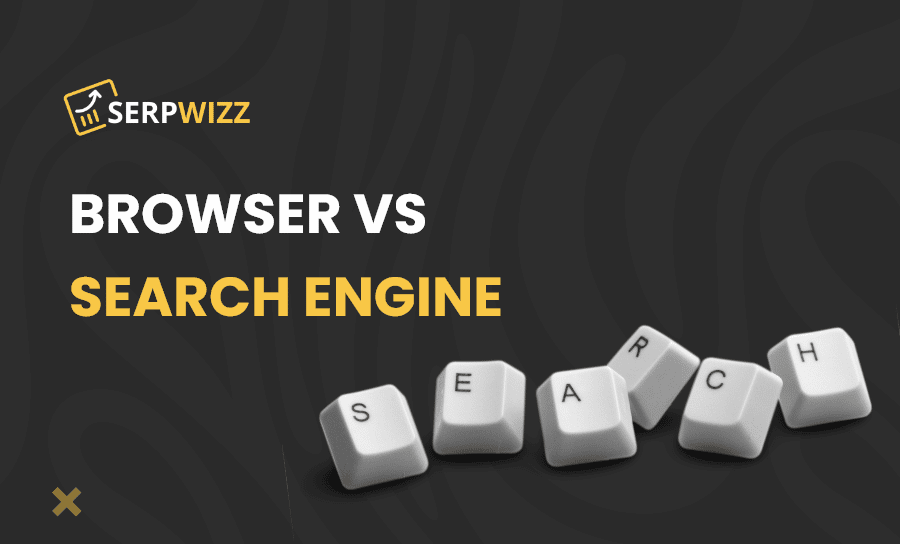What Does An SEO Analyst Do?

You might have come across this article thinking that a browser and a search engine are the same thing or are struggling to think of what makes them different. And that’s okay. That’s where we come in with our easy-to-follow breakdown of what sets these two things apart.
What is a Browser?
Browsers, also known as web browsers, are an example of application
software developed to retrieve and view the information from web pages or HTML files present on the web servers.
Various web browsers have been developed over the years, including Microsoft’s internet explorer, Google Chrome, Mozilla Firefox, Opera, and Apple safari.
Identifying a Browser

Knowing the difference between a browser and a search engine is easy once you recognize identifying them individually.
The main characteristics of Web Browsers that will help you identify them are:
- It consists of Graphical User Interface.
- It contains the search box where the user can type the address or URL.
- Page style can be static or dynamic. It depends upon the interactivity and the formatting.
- The web browsers use TCP/IP and HTTP protocols.
What is a Search Engine?
On the other hand, a search engine is a kind of website that people can use to search the available content on the Internet. For this purpose, users enter their desired keywords into the search field, which triggers the search engine to look through its index for relevant web pages and display them in a list. For example, if you enter “SEO agency London” in Google, you will see Pearl Lemon in the results.
The Internet is a vast source of information & resources, and search engines are the required piece of software needed to access the information and resources. Search engines that you will probably be familiar with include Google, Bing, or Yahoo.
Identifying a Search Engine
Three main components make up a search engine, and knowing these components makes identifying them so much easier.
- Crawler: Crawlers are software programs sometimes referred to the bots. It automatically scans the websites for URLs, keywords, and links to discover new updates.
- Index: As we know, the Crawler continuously scans the websites. It develops an index of URLs, links, and keywords to make the search results more effective for the users.
- Search Algorithm: The search algorithm is the complete mechanism behind the search process. It works by searching for the index and finding the most relevant web pages by matching the users’ keywords.
Differences Between Search Engines and Web Browsers

- A search engine is used to find the information on the World Wide Web and displays the results in one place, whereas the web browser uses the search engine to retrieve and view the information from web pages present on the web servers. One cannot serve its purpose without the other.
- The search engine is intended to gather Information regarding several URLs and maintain it. On the other hand, web browsers are intended to display the web page of the current URL available at the server.
- A search engine contains its own database, whereas no database is required in a web browser. It contains only cache memory to store cookies.
The most widely used search engines include Google, Yahoo, Bing, DuckDuckgo, Baidu, and Internet Explorer. However, you will also recognize some of the widely used web browsers, including Mozilla Firefox, Netscape Navigator, and Google Chrome.
SEO
The search engine’s proprietary algorithm determines that your website appears to return only what it determines are meaningful results. To come up on top, you can either pay the going rate for that search (these results are noted as “ads”) or ensure your site is well optimized so that it comes up high in the results organically, and that’s where search engine optimization (SEO) comes in.
Knowing which software you use falls under which terminology will probably make you realize the difference between the two. However, if not, then now you know the technology behind them and what differentiates them in a more advanced way.




